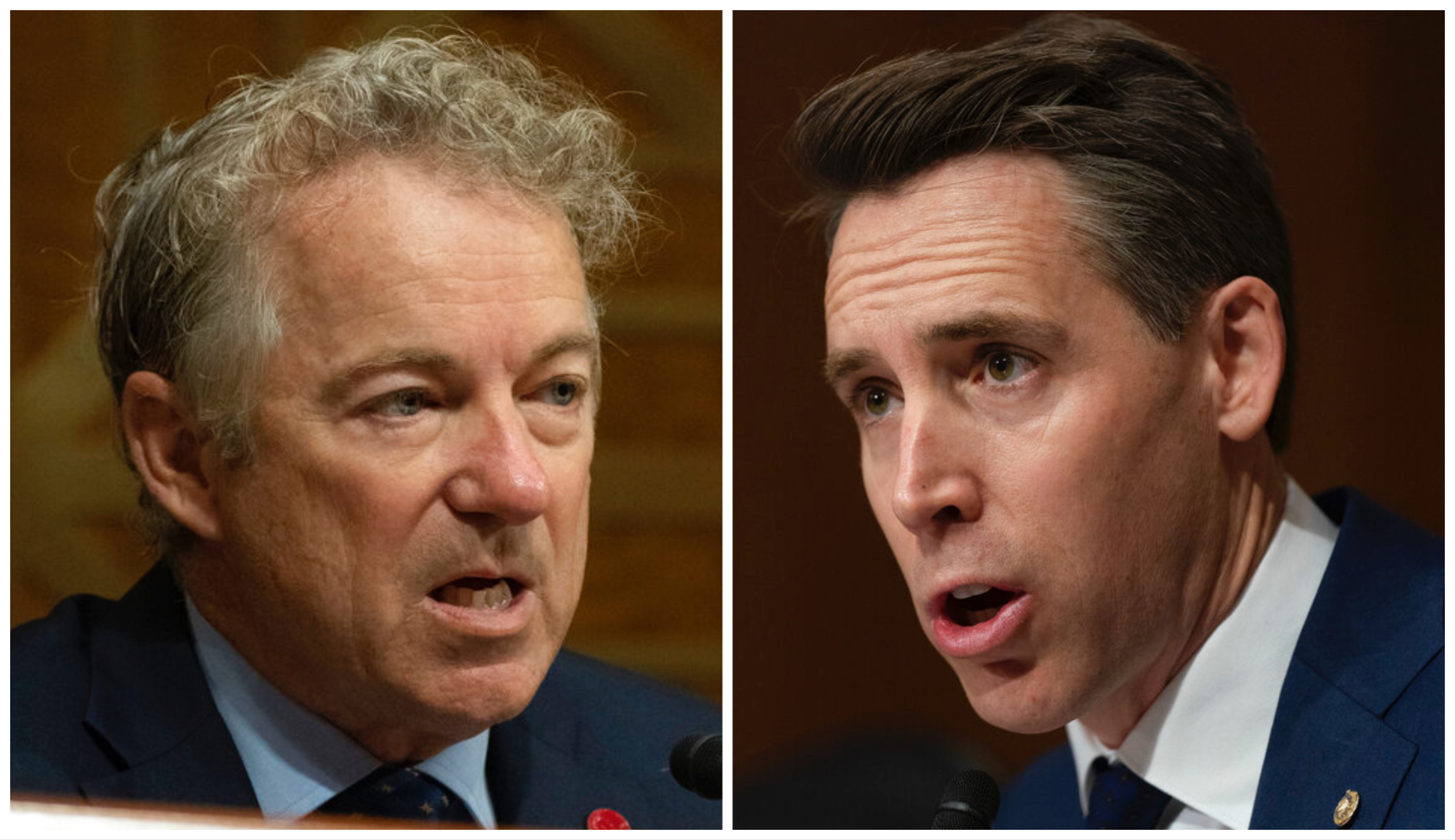Sen. Rand Paul (R-KY) blocked a move by Sen. Josh Hawley (R-MO) to ban TikTok in the United States as lawmakers become increasingly concerned the app presents a national security threat.
Hawley took to the Senate floor Wednesday evening to request unanimous consent on the No TikTok on United States Devices Act, legislation he introduced in January. The bill follows his successful push to ban the popular social media app from federal government devices last year.
SENATE VOTES TO END COVID-19 HEALTH EMERGENCY AFTER SIGNALS HE WON’T VETO
Hawley, in a speech from the floor, warned that the data collected on TikTok’s users open Americans up to surveillance by its Beijing-based parent company, ByteDance, which admitted in December that employees had tracked the location of U.S. journalists using the platform.
“We acted just a few months ago with a sense of urgency because we decided TikTok was a national security threat,” Hawley said. “And we were right to act just those few months ago. And now, we must take the next step — to ban TikTok nationwide, to protect the security of every single American.”
Paul immediately objected to the request, arguing that a ban would amount to censorship and infringe on people’s free speech rights.
“We should not let fear of communism cause us to ignore our First Amendment protections of free speech. This legislation would require our president to ban TikTok,” Paul said from the Senate chamber.
“I ask the American people, do you want Joe Biden to be your censor? Do you want a president of either party to decide what you are allowed to say and hear?” he added. “Who will you entrust to save you from your own eyes and ears?”
Paul suggested Republicans were hypocritical for complaining of censorship by platforms like Twitter while calling for a ban on TikTok, a move he said mirrors the Chinese government’s own tactics.

Paul’s opposition marks a break from his GOP colleagues, who overwhelmingly agree the app should be banned, and spared Democrats from having to decide whom to put forward to object.
A handful of progressive House Democrats who use the app have come out against a ban, arguing the push is driven by anti-China “hysteria.”
TIKTOK SQUAD: PROGRESSIVE DEMOCRATS COME OUT AS ALLIES FOR CHINA-AFFILIATED APP
But Senate Democrats have generally voiced deep reservations that the app could be used by the Chinese government to spy on Americans.
Sen. Mark Warner (D-VA) has partnered with Senate Minority Whip John Thune (R-SD) on the RESTRICT Act, a White House-endorsed bill to address those concerns that has so far garnered 21 co-sponsors, 10 Democrats and 11 Republicans.
Sen. Marco Rubio (R-FL), who put forward his own ban in December, opposes the Warner bill since it does not directly target TikTok and gives the president the ability to decide whether to ban the app rather than mandating it.
Rubio spoke out against Paul in a floor speech after he objected, saying it’s not a violation of free speech to bar the app.
“This is not a First Amendment issue because we’re not trying to ban ‘booty videos’ — I don’t know that there’s a better term for it,” Rubio said. “It’s not about the content of the videos that are online. It is about the dangers to our national security that are presented by the way this company functions.”
Hawley made the same case, insisting his concern is surveillance by the Chinese Communist Party.
“Posting is not the problem; what’s on the platform is not the problem. I don’t like the stuff that promotes suicide and so forth. But that’s not the reason to ban it,” Hawley told the Washington Examiner. “The reason to ban it is it is an espionage tool of the CCP.”
CLICK HERE TO READ MORE FROM THE WASHINGTON EXAMINER
Asked about one of Paul’s top donors, Jeff Yass, being the largest American investor in TikTok, Hawley said he believes the senator is making his argument in good faith.
The motion by Hawley comes days after the CEO of TikTok was grilled by lawmakers in testimony before the House Energy and Commerce Committee.

